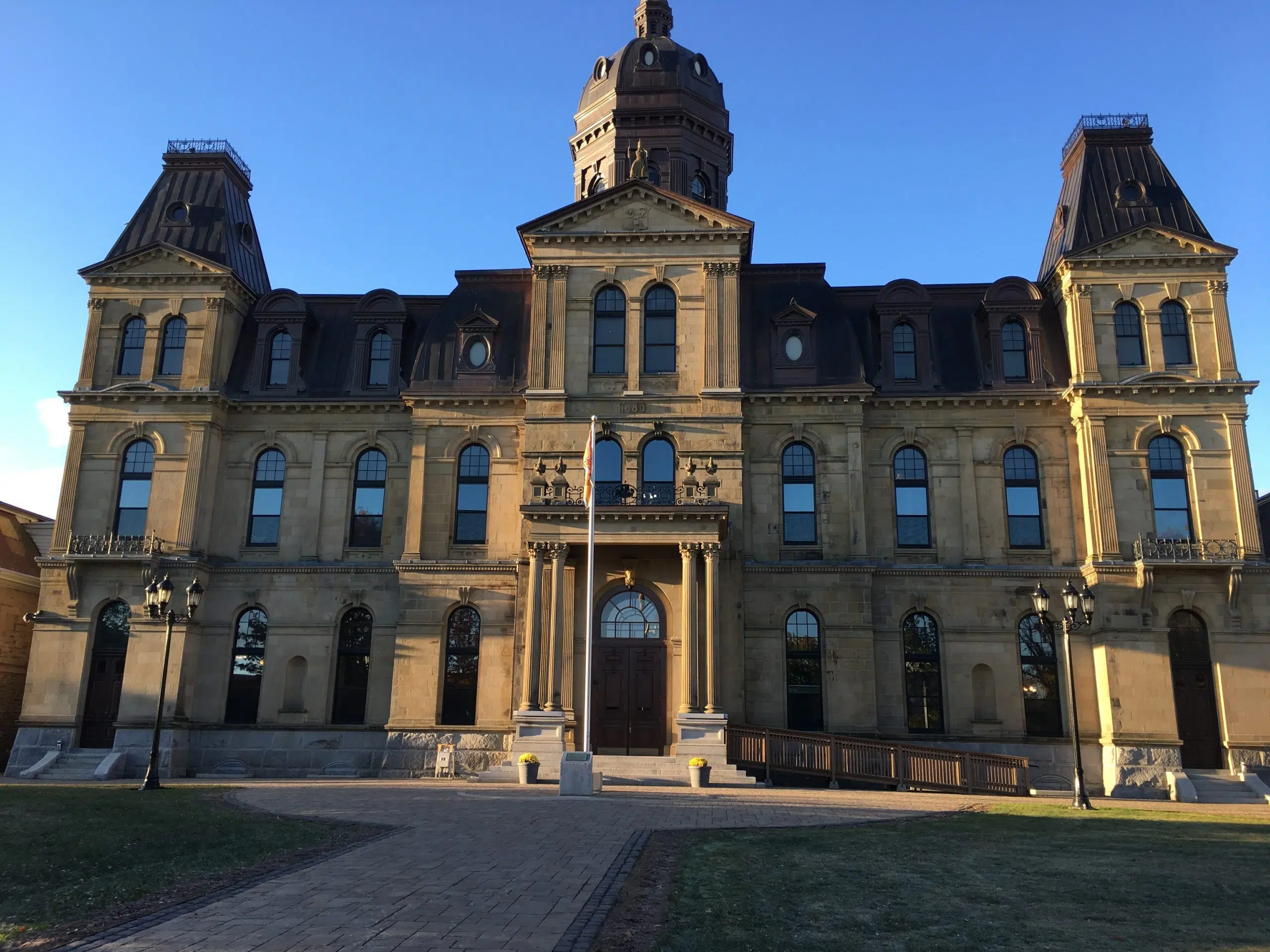New Brunswick is now projecting a much lower surplus than it was three months ago.
Second-quarter financial results, released Tuesday, show a projected surplus of $35.3 million.
That is down from the nearly $200 million surplus projected in the first-quarter update.
It is also lower than the budgeted surplus of $40.3 million for the 2023-24 fiscal year.
Finance Minister Ernie Steeves said unprecedented revenue growth that the province has seen in recent years is starting to slow.
“Unlike our first-quarter update, we are now projecting revenue declines in corporate income tax, unconditional grants, and the tobacco tax,” Steeves told reporters.
However, HST revenue is projected to be up nearly $78 million, while personal income tax revenue is up $51 million due to higher income and population growth.
Overall, total revenue is projected to be $156.2 million higher than budget, according to the second-quarter update.
“We are seeing some revenues that are starting to weaken a little bit, so I think we’re starting to see a bit more of a normalization,” said Todd Selby, a director at the Department of Finance and Treasury Board.
Meanwhile, total expenses are projected to be $161.2 million over budget for the 2023-24 fiscal year.
The Department of Health is projected to be over budget by $162 million due to higher operating and personnel costs and additional costs to Medicare.
“It’s the biggest department, it’s a $3.4-billion budget. They are a huge spender, but absolutely, it’s needed,” said Steeves.
Post-Secondary Education, Training and Labour is projected to be over budget by $53 million due to increased demands and federal funding for the WorkingNB program, as well as costs related to implementing the New Brunswick Housing Strategy.
Natural Resources and Energy Development is projected to be over budget by $21.2 million, which the province said is due mainly to costs related to the Enhanced Energy Savings Program.
New Brunswick’s net debt is also projected to increase nearly $162 million to $12.6 billion.
Finance staff said it is largely due to the record $1 billion in capital spending being undertaken by the province.
“Those investments exceed the amount of amortization we pay, and the net effect of that is an increase to net debt because of that additional investment and borrowing that’s required to facilitate those investments in capital infrastructure,” said Nick McCann, assistant deputy finance minister.
Opposition parties respond
The Liberal finance critic said Tuesday’s fiscal update leaves him with many unanswered questions.
René Legacy said he was not surprised to see that revenue continues to trend higher than budgeted.
But Legacy said he was surprised to see such a wide margin between budgeted and projected expenses.
“What I’m not seeing is a lot of new initiatives. What it seems that the minister is saying is it costs a lot more for what they had planned to do with this budget,” Legacy told reporters.
Legacy said he is also concerned about what the lower-than-anticipated surplus could mean for affordability measures.
The finance minister would not put a timeline on when any new measures may be announced.
Meanwhile, the Green Party’s finance critic also expressed concern about there being no new affordability measures in the update.
“They promised to help New Brunswickers deal with the cost of living and we’re still waiting and we’re waiting and we’re waiting. Every time someone asks him, it’s that we’re talking about it,” Kevin Arseneau told reporters.
Arseneau said there is a lack of vision from the Higgs government and a lack of investment in needed areas.
The Green MLA also expressed frustration that the Opposition parties were not invited to the fiscal update briefing, as they had been in the past.








